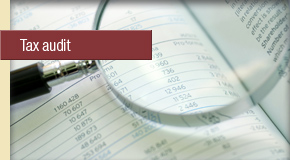
|
What is a personnal exam on individual tax position (“ESFP”)?
Tax authorities define individual tax control as all necessary procedures required to check the sincerity of the income tax declared on the tax form and to control:
and
To begin with, the controller examines the taxpayer’s file and obtains further information from external sources by using his communication rights (e.g. bank statements). Then the controller contacts the taxpayer to obtain further information or documentation, analyses them and eventually asks for justification regarding certain operations (e.g. bank movements). The absence or insufficiency of response may provoke an estimated assessment procedure. Guarantees I. The taxpayer must receive a warning notice informing him that he is subject to an individual tax audit (art 47 of the LPF). II. The taxpayer must have a minimum period between receiving the warning notice and the start of the audit to allow him to be assisted by an advisor. III. Unless prorogation, the individual tax audit will be completed within one year from the date of reception of the warning notice. Under certain circumstances, this may be extended to two years (e.g. hidden activity discovered). IV. The taxpayer must be informed of the outcome of the audit, even when no tax adjustments arise. V. The tax authority cannot readjust the same taxes for the same period once a contradictory individual tax audit regarding income tax has been completed unless the taxpayer has acted in bad faith or has given uncomplete or false information (art. 50 of the LPF). |
